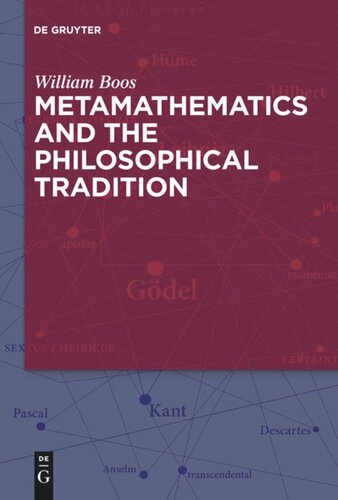

Most ebook files are in PDF format, so you can easily read them using various software such as Foxit Reader or directly on the Google Chrome browser.
Some ebook files are released by publishers in other formats such as .awz, .mobi, .epub, .fb2, etc. You may need to install specific software to read these formats on mobile/PC, such as Calibre.
Please read the tutorial at this link: https://ebookbell.com/faq
We offer FREE conversion to the popular formats you request; however, this may take some time. Therefore, right after payment, please email us, and we will try to provide the service as quickly as possible.
For some exceptional file formats or broken links (if any), please refrain from opening any disputes. Instead, email us first, and we will try to assist within a maximum of 6 hours.
EbookBell Team

5.0
18 reviewsMetamathematics and the Philosophical Tradition is the first work to explore in such historical depth the relationship between fundamental philosophical quandaries regarding self-reference and meta-mathematical notions of consistency and incompleteness.
Using the insights of twentieth-century logicians from Gödel through Hilbert and their successors, this volume revisits the writings of Aristotle, the ancient skeptics, Anselm, and enlightenment and seventeenth and eighteenth century philosophers Leibniz, Berkeley, Hume, Pascal, Descartes, and Kant to identify ways in which these both encode and evade problems of a priori definition and self-reference. The final chapters critique and extend more recent insights of late 20th-century logicians and quantum physicists, and offer new applications of the completeness theorem as a means of exploring "metatheoretical ascent" and the limitations of scientific certainty.
Broadly syncretic in range, Metamathematics and the Philosophical Tradition addresses central and recurring problems within epistemology. The volume’s elegant, condensed writing style renders accessible its wealth of citations and allusions from varied traditions and in several languages. Its arguments will be of special interest to historians and philosophers of science and mathematics, particularly scholars of classical skepticism, the Enlightenment, Kant, ethics, and mathematical logic.